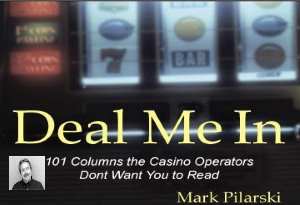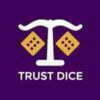Two questions, please. Do 25¢ slots pay back more than 5¢ machines? Also, does Nevada have the best slots? Sharon T.
First, Sharon, let’s get the easy stuff out of the way. Five-cent slots return less than 25¢ slots, which return less than $1 slots, and of course, less than the $5 machines. The reason those 5¢ slots pay you ________ (you fill in the space) is because they take the same amount of real estate in a casino as the other machines, plus cost as much, if not more (picture losers beating on them) to maintain. Oh, yes, a brief explanation of what I mean by “return.” For every dollar inserted, the slot’s computer is pre-programmed to give back a certain percentage to you, the player. It’s that simple.
As for where to play, Nevada slots in general give you more cluck-for-the-buck, but you’ll find more coins dropping in your tray anywhere casinos slug it out for customers. Like anything else, you’ll benefit most where there’s competition.
While we’re at it, Sharon, let’s examine the differences between the boats where you live, Illinois, and the gambling vessels in Iowa. Starting with the 5¢ slots, there is no competition. Illinois has only 40 nickel machines in the entire state compared to 642 in Iowa. Look for an average return of 87 percent on Iowa’s 5¢ machines. As for the quarter circuit, in Illinois, expect an average payback of 91.6 percent compared to 91.8 percent across the river.
And in Nevada, if you decide to make a gaming pilgrimage out west, your best play is the 92.2 percent payback on the 5¢ machines in Reno and the 95.7 percent average return on the 25¢ slots in downtown Las Vegas.
Can a casino, or anyone for that matter, mess with the computer chip in a slot machine so that a jackpot will never appear on the screen? Morgan P.
Feel safe, Morgan, that in your state, Missouri, gaming operates under the strict Gaming Commission guidelines, insuring that every chip will deliver random action each and every time you insert a coin.
In Missouri, the Gaming Commission tests each e-prom chip (erasable programmable read only memory) when the machines are first installed to verify that the machine will operate as proposed by the casino. Then when large jackpots are hit, a Highway Patrol Officer, who is an agent of the Gaming Commission, “cobotrons” (detects if the chip has been altered) the e-prom to make sure that it hasn’t been tampered with. This can amount to a dozen cobotron tests per day, per boat. Sorry to bore you with all this nerdy computer stuff, Morgan, but I do plan a column soon on how the slots of today (computers) work-in layman’s lingo that is.
If you were limited to making just one bet in a casino and had a limited budget, what would it be? Bo T.
Too easy, Bo. Since one of my greatest passions is open wheel racing (CART), my one wager would be on the Indianapolis 500, sitting in a sportsbook for three hours sipping free cocktails and watching grown men (and woman, Lynn St. James) making left-hand turns wasting methanol.
The general public may not share the same fixation for boredom, so I would recommend plan B, a pass line wager on a craps game. Three specific reasons come to mind. First, it’s a wager with a small house advantage (1.4 percent). Second, though playing perfect basic strategy at blackjack or video poker drops that casino edge even lower, a pass line bet requires limited (actually zero) knowledge. And finally, if you ask any craps player, Bo, they’ll tell you craps is truly the fastest, most exhilarating game in the casino.
With low table minimums and a modest pass line bet on the layout, I would agree.




















